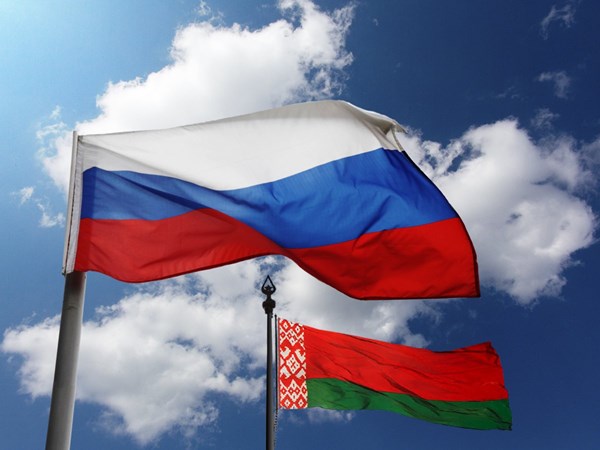Russia threatens Belarus with economic crisis for refusing to integrate
Refusing to enter into a union with Russia will drive Belarus into an economic crisis, said Konstantin Zatulin, deputy chair of the State Duma committee for the CIS, Eurasian integration and relations with Russian nationals abroad. The Russian politician was commenting on Belarusian President Alexander Lukashenko’s decision not to sign any documents to deepen integration with Russia that might deprive Minsk of its sovereignty.
Russia wants Belarus to transition to a full-fledged union state with a single currency, de facto demanding that Minsk relinquish its ability to print money. Moscow’s conditions for new and old loans to Belarus are now closely linked to progress in integration.
Despite extended negotiations and multiple trips to Minsk, Russian Minister of Economic Development Maxim Oreshkin and Federation Council Spokesperson Valentina Matviyenko have been unable to persuade Lukashenko.
On Sunday the Belarusian president even called into question the need for a union state. “Every year they impose new conditions on us. And as a result our economy is constantly losing and losing. Who needs such a union?” Lukashenko asked.
Russia does not allow certain types of Belarusian goods to enter its market, and Minsk is losing about $9 billion annually, he said. He clarified, however, that Belarus does not intend to start a trade war with Russia (“like America with China”), but Russia’s behavior is still “wrong”, because conditions are “getting worse every year”.
Lukashenko’s statements are an attempt to gain some sort of advantage, observed Zatulin in response, adding that such an approach is unlikely to lead to any positive results for the Belarusian economy.
“Frankly speaking, I don’t see any prospects for the Belarusian economy if breaks off its economic relations with Russia. In any event, it will cause a crisis,” Zatulin told the Govorit Moskva (Moscow Speaks) radio station in an interview.
“The question arises whether Russia itself needs an ally like Belarus, since recently Lukashenko has been pursuing a policy of ‘Belarusization’ and stopping any attempts by supporters of integration to actively assert themselves,” the politician continued.
“All this is, of course, an extremely serious problem, but I don’t think that the time has come yet for us to break off ties in the Union State,” he added.
The Belarusian economy, which is closely linked to the Russian market, has been stagnating along with Russia’s GDP: between January and September it grew by only 1%.
However, unlike Russia, where the commodities and consumer financing sectors remain sources of growth, the primary GDP driver in Belarus has been the IT sector, which provided 0.5% percentage points of the cited growth figure, according to official statistics.
Over seven years, the contribution made by information and communications technology to Belarus’s GDP has nearly tripled: in 2011 it accounted for 2.2%, whereas now it accounts for 6.1%. The gross added value of IT in real terms has skyrocketed by 88% in the same period. The sector is
currently even larger than transport activity (5.9%), construction (3%) and nearly as much as agriculture (6.6%).
This is partially a result of the decision to legalize cryptocurrencies and to create a high technologies park/IT cluster with special regulations, which more than 500 companies form part of, note analysts from Sberbank’s macroeconomic research center.
The technology park still makes only a small contribution to exports (4.5%), and the state sector remains the source of two thirds of Belarus’s production. “The burden of the low efficiency of this part of the economy will put serious pressure on economic growth, and it will be extremely difficult to offset this with only the growth of the information technologies sector,” Sberbank predicts.
